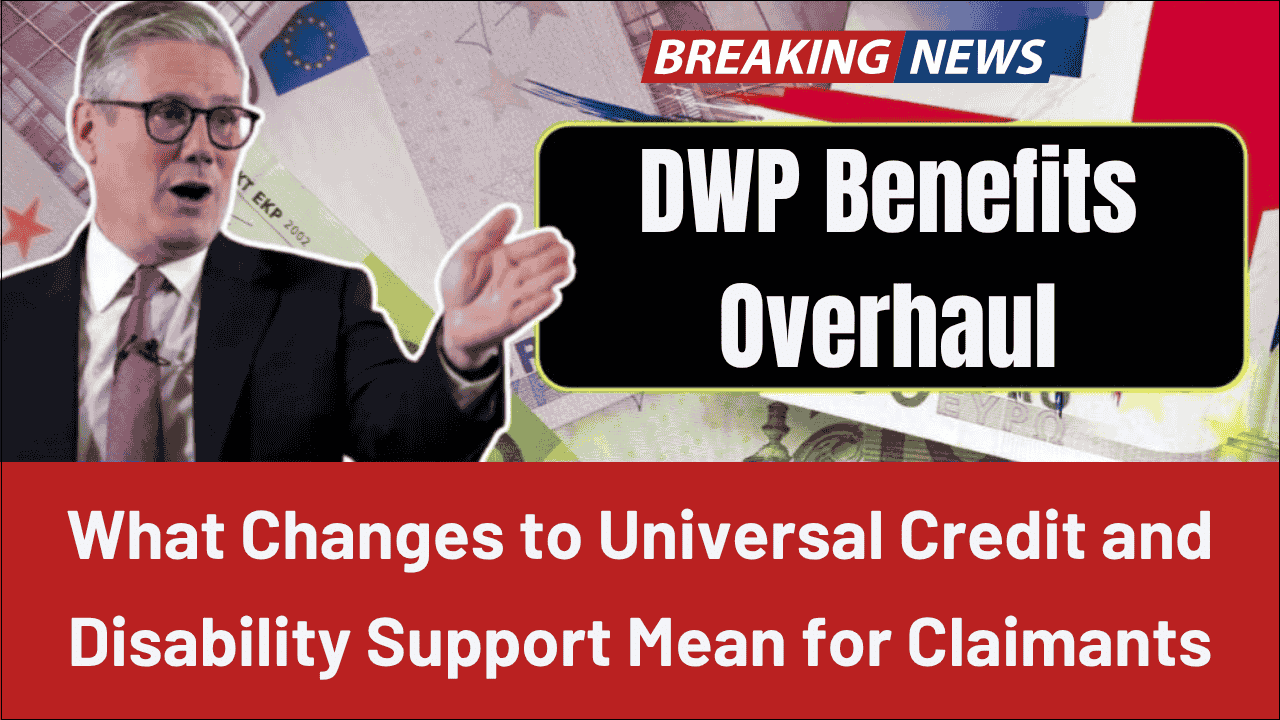
The UK Department for Work and Pensions (DWP) finds itself at the center of mounting political and public pressure as proposed changes to Personal Independence Payment (PIP) and Universal Credit (UC) face significant delays. What were once scheduled as imminent reforms have been pushed back by over a year, reflecting the intensity of opposition from disability rights groups, MPs, and affected claimants across the nation.
These reforms, which could potentially impact over 150,000 people including disabled individuals and their carers, represent some of the most controversial welfare changes proposed in recent years. The delays signal not just logistical challenges but fundamental concerns about the fairness and impact of the proposed system overhauls.
Understanding the Current Benefits System
Personal Independence Payment serves as a crucial lifeline for people aged 16 to 64 who face additional costs due to long-term health conditions or disabilities. Universal Credit functions as the UK’s flagship welfare program, consolidating multiple benefits into a single payment system designed to support individuals and families with low incomes. Together, these programs form the backbone of Britain’s social safety net for millions of vulnerable citizens.
The importance of these benefits cannot be overstated—they provide essential financial support that enables disabled people to live independently and maintain dignity while managing the extra costs associated with their conditions.
Timeline of Delays and Implementation Schedule
The proposed reforms have experienced substantial delays, reflecting the complex political and practical challenges involved in overhauling such critical welfare programs.
Reform Timeline and Key Milestones
| Stage | Original Timeline | Revised Timeline | Status |
|---|---|---|---|
| Public Consultation Launch | Early 2024 | Extended through 2024 | Completed |
| Consultation End Date | March 2025 | June 30, 2025 | Extended |
| Legislative Action | Late 2024/Early 2025 | July 2025 | Delayed |
| Initial Implementation | 2025 | 2026 | Postponed |
| Full Rollout | 2025-2026 | 2026-2027 | Under review |
Impact Assessment Overview
| Affected Group | Estimated Numbers | Primary Concern | Support Available |
|---|---|---|---|
| PIP Claimants | 100,000+ | Stricter eligibility criteria | Citizens Advice guidance |
| UC Health Element Recipients | 50,000+ | Reduced payment rates | Welfare rights advocacy |
| Carers | 150,000 | Loss of Carer’s Allowance | Carers organizations support |
| New Claimants | Future applicants | Reduced entitlements | DWP guidance updates |
Political and Public Opposition
The resistance to these reforms has been unprecedented in its scope and intensity, involving stakeholders from across the political spectrum and civil society.
Sources of Opposition and Their Concerns
| Opposition Group | Primary Concerns | Proposed Solutions |
|---|---|---|
| Labour MPs (100+) | Increased poverty and hardship | Complete policy reversal |
| Disability Rights UK | Discrimination against disabled people | Extended consultation and impact assessment |
| Citizens Advice | Administrative burden and complexity | Simplified assessment processes |
| Carers Organizations | Loss of support for unpaid carers | Protected status for carers |
| Mental Health Charities | Impact on invisible disabilities | Recognition of fluctuating conditions |
The opposition reflects genuine concerns about the human cost of these changes, with advocates arguing that the reforms could push vulnerable people into poverty and undermine the UK’s commitment to supporting disabled citizens.
Detailed Analysis of PIP Reforms
The proposed changes to Personal Independence Payment represent a fundamental shift in how disability benefits are assessed and awarded in the UK.
Key PIP Reform Elements
| Reform Area | Current System | Proposed Change | Potential Impact |
|---|---|---|---|
| Eligibility Scoring | Points across multiple categories | Minimum 4 points in single category | Fewer people qualifying |
| Assessment Frequency | Varies by condition | More regular reassessments | Increased administrative burden |
| Condition Types | Broad range of disabilities | Focus on severe limitations | Exclusion of mild/moderate conditions |
| Carer Impact | Automatic Carer’s Allowance link | Dependent on PIP eligibility | Loss of carer support |
Real-World Impact Scenarios
The proposed changes could significantly affect people with various types of disabilities and health conditions:
Scenario 1: Chronic Pain Sufferer
- Current situation: Receives PIP for daily living difficulties
- Under new rules: May not score 4 points in any single category
- Result: Potential loss of benefits despite ongoing struggles
Scenario 2: Mental Health Conditions
- Current situation: Support for anxiety and depression impacts
- Under new rules: Difficulty proving severe limitation in one area
- Result: Reduced recognition of invisible disabilities
Universal Credit Health Element Changes
The proposed modifications to Universal Credit’s health element represent substantial cuts that could affect thousands of current and future claimants.
UC Health Element Modifications
| Claimant Type | Current Rate | April 2025 Rate | April 2026 Rate | Percentage Change |
|---|---|---|---|---|
| Existing Claimants | £97/week | £97/week (frozen) | £97/week (frozen) | No increase until 2030 |
| New Claimants (2025) | £97/week | £97/week | £50/week | -48% reduction |
| New Claimants (2026+) | £97/week | N/A | £50/week | -48% reduction |
Financial Impact Analysis
| Monthly Impact | Current Recipients | New Claimants (2026) | Annual Difference |
|---|---|---|---|
| Weekly Amount | £97 | £50 | -£47 |
| Monthly Amount | £420 | £217 | -£203 |
| Annual Amount | £5,044 | £2,600 | -£2,444 |
Assessment System Overhaul
Both PIP and Universal Credit reforms include plans to replace the current Work Capability Assessment (WCA) with new evaluation methods.
Assessment System Comparison
| Assessment Type | Current System | Proposed System | Key Changes |
|---|---|---|---|
| Work Capability Assessment | Separate UC evaluation | Integration with PIP model | Streamlined but potentially stricter |
| PIP Assessment | Current methodology | Enhanced criteria | Higher thresholds for qualification |
| Frequency | Condition-dependent | More regular reviews | Increased assessment burden |
| Appeal Process | Established procedures | New framework required | Uncertainty for claimants |
Government and Stakeholder Responses
The delays reflect the government’s recognition of the significant concerns raised during the consultation process and the need for more thorough impact assessment.
Official Resources and Support
For the most current information on these reforms, claimants should reference official government sources:
- DWP Official Website: https://www.gov.uk/government/organisations/department-for-work-pensions
- PIP Information: https://www.gov.uk/pip
- Universal Credit Details: https://www.gov.uk/universal-credit
- Consultation Responses: https://www.gov.uk/government/consultations
Support Organizations and Advocacy
| Organization | Website | Primary Focus |
|---|---|---|
| Citizens Advice | https://www.citizensadvice.org.uk | General welfare guidance |
| Disability Rights UK | https://www.disabilityrightsuk.org | Disability advocacy |
| Scope | https://www.scope.org.uk | Disability support services |
| Turn2us | https://www.turn2us.org.uk | Benefits calculator and advice |
Immediate Actions for Claimants
Given the uncertainty surrounding these reforms, current and potential claimants should take proactive steps to protect their interests and stay informed about developments.
Preparation Checklist for Claimants
| Action Item | Priority Level | Timeline | Purpose |
|---|---|---|---|
| Document Organization | High | Immediate | Prepare for potential reassessments |
| Consultation Participation | High | Before June 30, 2025 | Influence policy development |
| Benefit Review | Medium | Next 6 months | Ensure current entitlements |
| Support Network | Medium | Ongoing | Access to advice and advocacy |
| Financial Planning | Medium | Next 12 months | Prepare for potential changes |
Looking Ahead: What the Delays Mean
The postponement of these reforms provides both breathing room and continued uncertainty for affected claimants. While the delays offer more time for consultation and potential modifications, they also mean prolonged anxiety for those who depend on these benefits.
The extended timeline suggests that the government recognizes the complexity and sensitivity of these changes. However, it’s important to note that delays do not necessarily mean cancellation—the reforms remain under active consideration and could still be implemented in modified form.
Conclusion
The major delays to PIP and Universal Credit reforms reflect the significant challenges facing the DWP as it attempts to balance fiscal responsibility with protecting vulnerable citizens. The intense political and public opposition demonstrates the vital importance of these benefits to disabled people and their carers across the UK.
As the consultation period extends to June 30, 2025, it remains crucial for affected individuals to stay engaged with the process and make their voices heard. The eventual shape of these reforms will depend significantly on continued public input and political pressure.
While uncertainty continues, the delays provide an opportunity for more thoughtful consideration of the potential impacts and the development of policies that better protect the most vulnerable members of society. For now, claimants should focus on maintaining their current benefits while staying informed about developments through official channels and support organizations.
Frequently Asked Questions
When will the PIP and UC changes actually be implemented? Legislative action is planned for July 2025, with full implementation unlikely until 2026 or later.
How many people will be affected by these reforms? Over 150,000 claimants are expected to be impacted, including disabled people and their carers.
What’s the biggest change to Universal Credit? The health element will be cut from £97 to £50 per week for new claimants starting in April 2026.
Can I still influence these reforms? Yes, the consultation period has been extended until June 30, 2025, allowing continued public input on the proposed changes.







